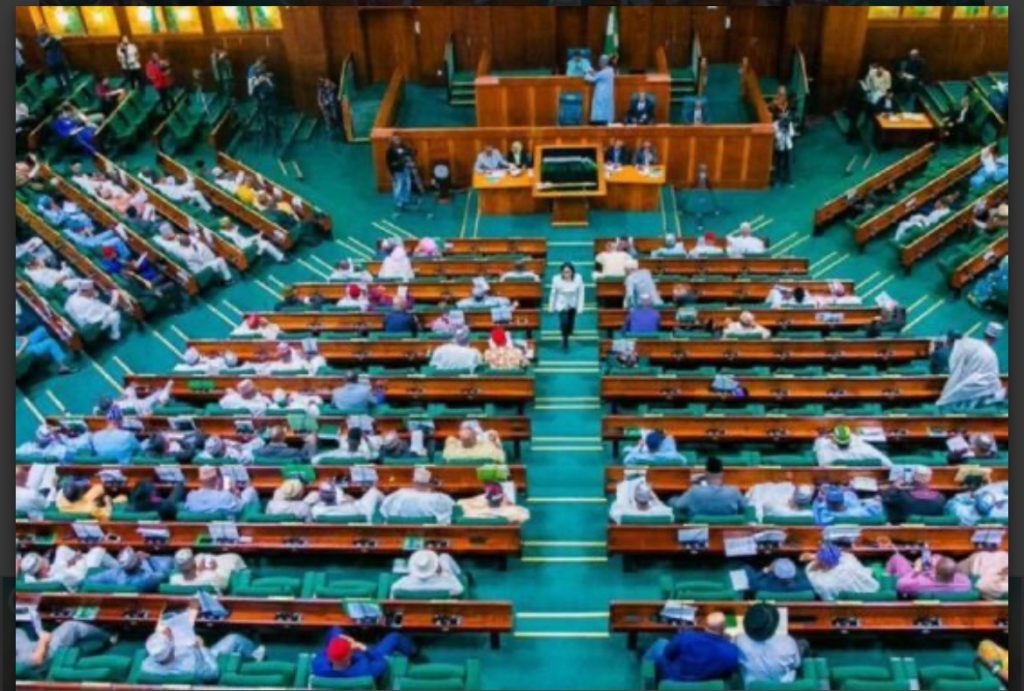By Okeke Eunice

A bill proposing the creation of New Oyo State, with Oyo town as its capital, passed its second reading in the House of Representatives on Tuesday.
The bill, sponsored by Hon. Adeniyi Adeyemi and six others, also calls for renaming the remaining part of Oyo State to Ibadan State, designating Ibadan as its capital, and defining the Local Government Areas for both new states.
In his debate, Hon. Adeyemi noted that this is not the first time the bill has been introduced, recalling that it was passed during the Second Republic by both houses of the National Assembly but was stalled before receiving presidential approval due to a military takeover.
In 1983, the National Assembly successfully passed a motion to create New Oyo State, with Oyo Town as its capital, as recorded in the National Assembly Debates (Senate) Official Report, Volume 2, No. 24, from February 23, 1983.
Additionally, the 2014 National Conference in Abuja recommended the creation of New Oyo State, again with Oyo Town as its capital, as stated in Volume II, page 708 of its final report.
It’s important to note that Oyo State, the largest in terms of landmass in the South-West geopolitical zone, has 33 Local Governments and a population of 5,580,894 according to the 2006 census, making the proposal for its division more relevant.
The proposed New Oyo State, once established, has all the necessary factors to be economically and politically viable. It boasts vast agricultural and water resources, making it sustainable.
The three zones that would make up the new state have abundant arable land suitable for both cash and staple crops, as well as sufficient water resources for drinking water, hydropower, and irrigation.
Regarding mineral resources, the area is rich in commercial deposits of marble, gold, granite, kaolin, and limestone, among others.
The proposed state also has thriving industries, including traditional cloth weaving, metal works, high-quality leather production, and wood carving, all of significant commercial value.
Tourism would be another economic pillar, with numerous attractions such as Old Oyo National Park, Upper Ogun game reserves, the suspended lake at Ado Awaye, various hills, the Manor House at Iseyin, and the Royal Forest at Igboho. These, along with the palaces of traditional rulers rich in historical significance, could boost international tourism and local revenue.
Oyo Town is justified as the capital of the new state due to its existing administrative and government facilities. It is a cultural and linguistic hub for Yoruba heritage, once the seat of the old Oyo Kingdom, which extended beyond Nigeria’s borders. Oyo Town also served as the provincial headquarters before Ibadan Province was established in 1936.
Oyo metropolis previously served as the divisional headquarters of Oyo Division and the district headquarters of Oyo District. It is home to several tertiary institutions, including colleges and public and private universities.
The Erelu Dam, located in Oyo metropolis, provides water to the four Local Government Areas in the Oyo zone and is the second-largest water reservoir in present-day Oyo State.
Oyo’s Government Reservation Area (G.R.A.) is one of the country’s oldest and largest, and it could serve as a temporary government house for the proposed New Oyo State. Additionally, 14 branches of state ministries, parastatals, and agencies are currently operational in Oyo metropolis, which could be used as starting offices for the new state’s administration.
Oyo Town is currently the only provincial headquarters in Nigeria that hasn’t become a state capital, further supporting the argument for its designation as the capital of New Oyo State. In terms of security, the Nigeria Police Area Command in Oyo, covering 14 of the 19 Local Government Areas in the proposed New Oyo State, could serve as the state’s police headquarters. Additionally, a Federal Medium Security Prison is already situated in Oyo.
He urged support for the bill, emphasizing that it would promote the socio-political and economic development of the region and the nation. He also highlighted the broad public support for constitutional reforms that include state creation, devolution of powers to states and local governments, and a return to true federalism.
The bill was subsequently referred to the Special Ad-hoc Committee on Constitution Review for further legislative consideration.